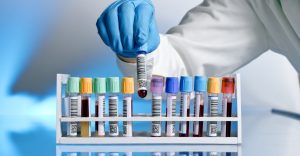More acne treatments have been recalled due to contamination with benzene—a known cancer-causing chemical.
Others are reading now
The U.S. Food and Drug Administration (FDA) has announced an expanded recall of acne treatment products found to contain elevated levels of benzene, a chemical classified as a known human carcinogen.
Six new products sold under brand names such as Walgreens, Proactiv, SLMD, and Zapzyt have been voluntarily recalled following FDA testing of 95 acne treatments that contain benzoyl peroxide.
This recall follows an earlier one by L’Oréal, which removed its La Roche-Posay Effaclar Duo Dual Action Acne Treatment from shelves earlier this week.
“The risk of a person developing cancer because of exposure to benzene found in these products is very low,” the FDA said in a statement.
Also read
Full List of Recalled Acne Products
The products are listed by brand, product name, lot numbers, and expiration date:
-
La Roche-Posay Effaclar Duo Dual Action Acne Treatment
-
Lot number: MYX46W
-
Expiration date: April 2025
-
-
Walgreens Acne Control Cleanser
-
Lot number: 23 09328
-
Expiration date: September 2025
-
-
Proactiv Emergency Blemish Relief Cream 5% Benzoyl Peroxide
-
Lot numbers: V3305A; V3304A
-
Expiration date: October 2025
-
-
Proactiv Skin Smoothing Exfoliator
-
Lot number: V4204A
-
Expiration date: July 2025
-
-
SLMD Benzoyl Peroxide Acne Lotion
-
Lot number: 2430600
-
Expiration date: March 2025
-
-
Walgreens Tinted Acne Treatment Cream
-
Lot number: 49707430
-
Expiration date: March 2026
-
-
Zapzyt Acne Treatment Gel
-
No specific lot listed
-
Voluntarily recalled by manufacturer
-
The FDA found that under certain conditions, benzoyl peroxide, a common acne-fighting ingredient, can break down into benzene, especially when exposed to heat or improper storage.
The agency began its own testing after receiving third-party lab reports raising concerns. While over 90% of the products tested had undetectable or extremely low levels of benzene, the recalled items exceeded acceptable thresholds.
What Consumers Should Do
The FDA has not issued specific instructions for consumers with these products at home, but it recommends:
-
Checking product lot numbers and expiration dates
-
Discarding expired products
-
Monitoring for any product updates or health symptoms, and contacting a healthcare provider if concerned
All recalls are voluntary and conducted at the retail level, meaning affected products are being removed from physical and online shelves.
The full testing results from the FDA are expected to be released in the coming months.








